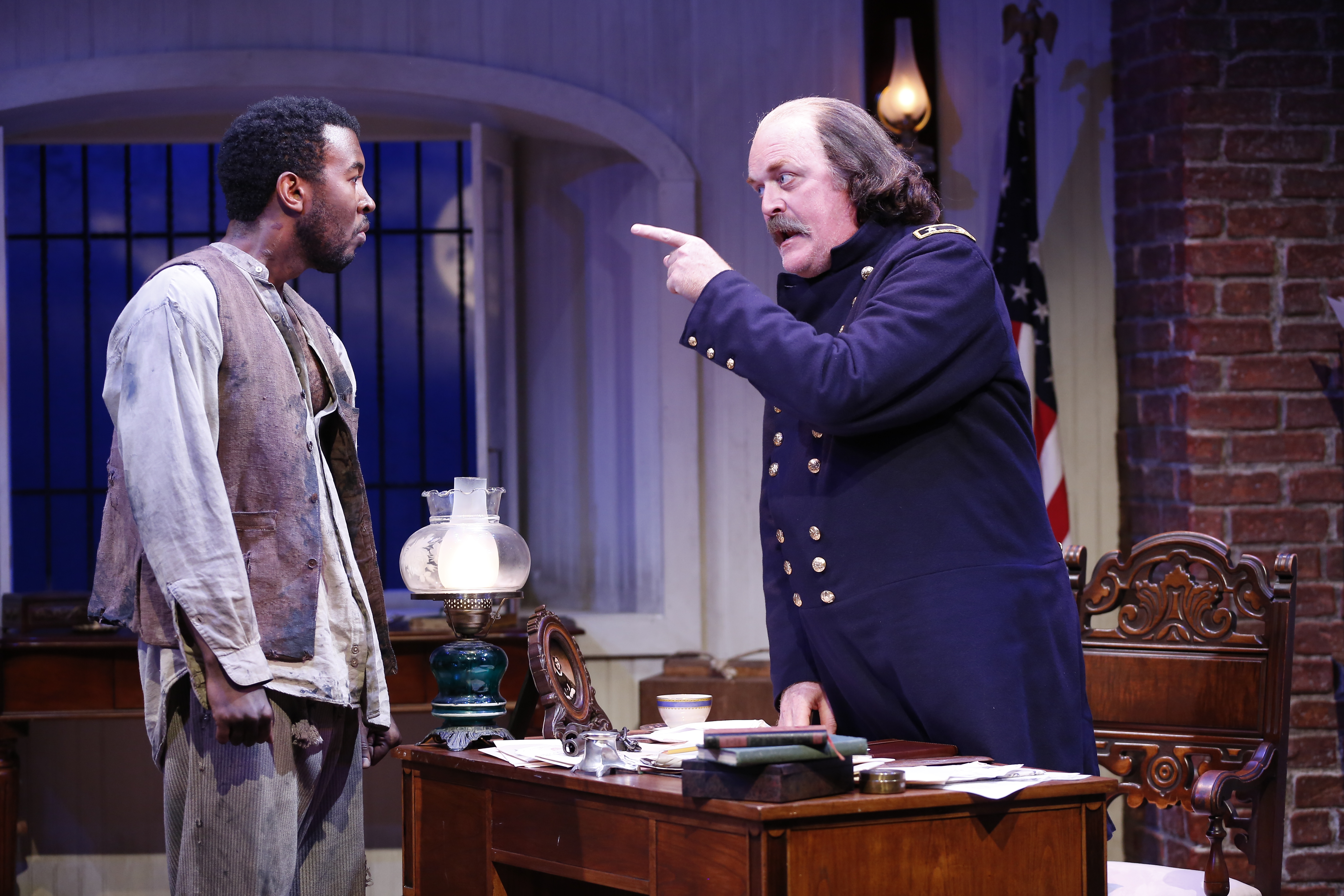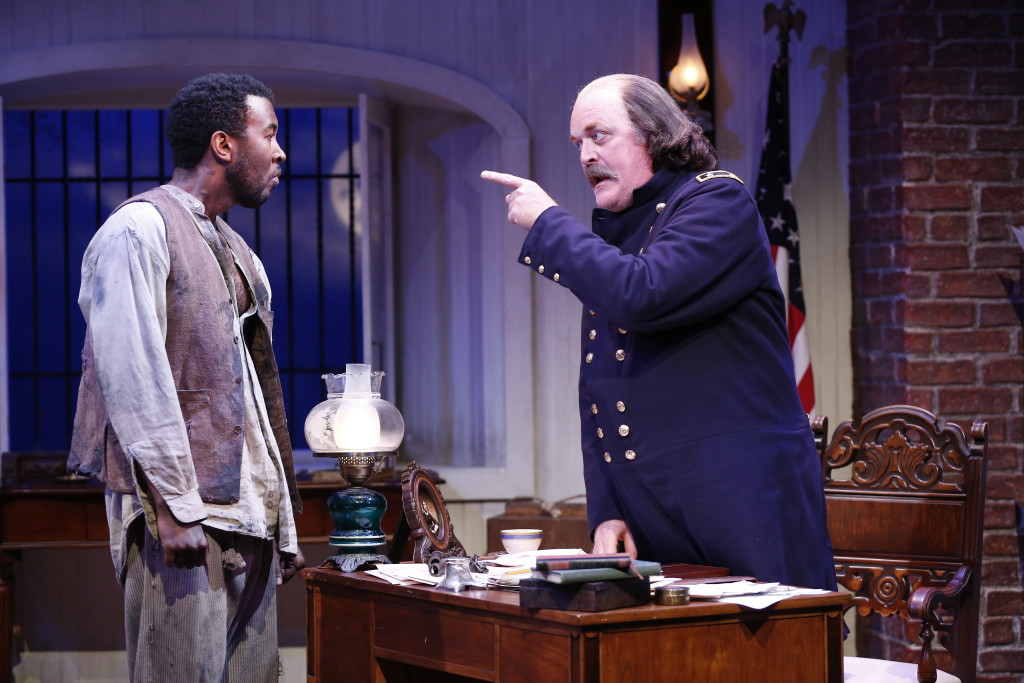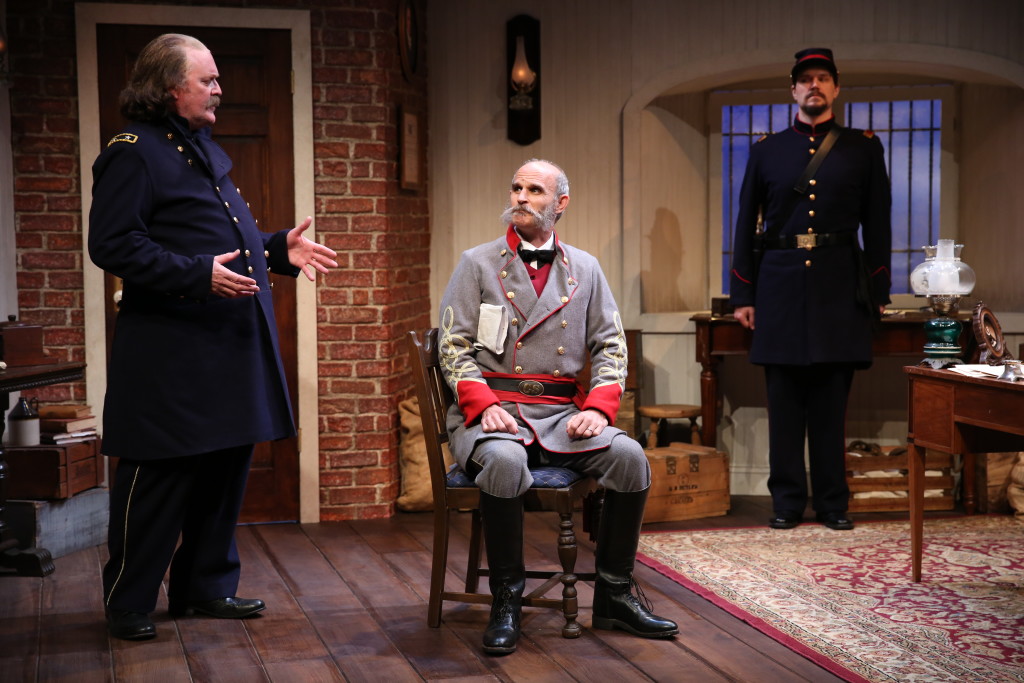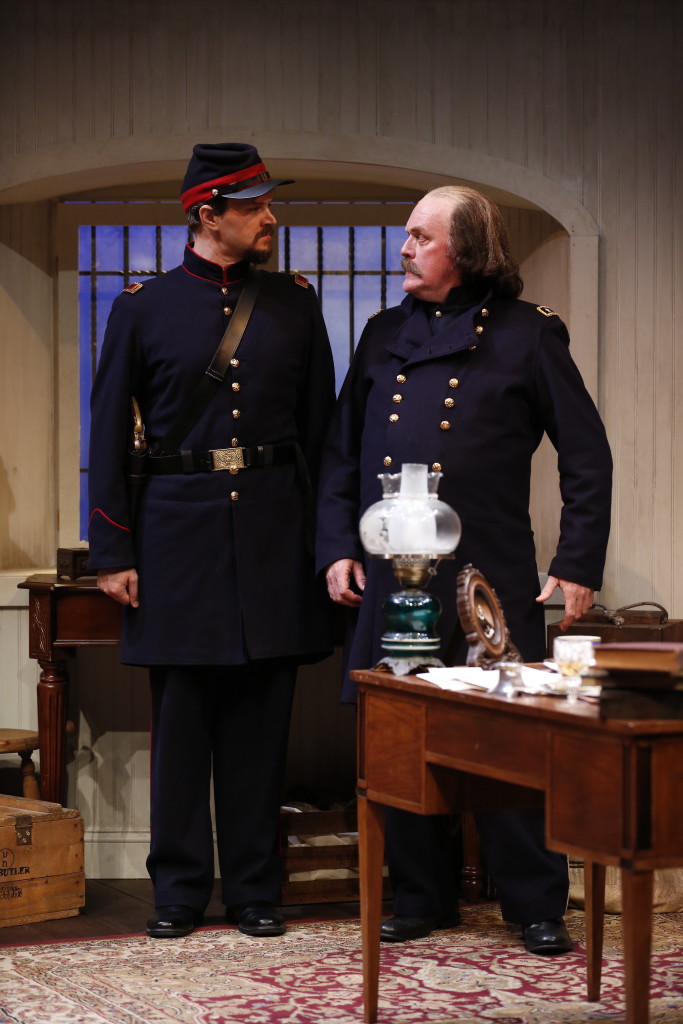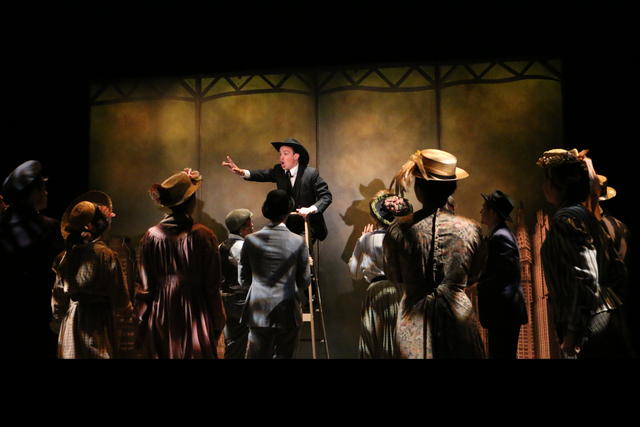by Carole Di Tosti
Benjamin Franklin Butler (1818-1893) was a controversial historical figure who cut a wide swath in politics, business, the military and the legal profession. The military governor of New Orleans for part of the Civil War, he made many enemies in the South. After he left that post, he was commissioned to lead the Army of the James, a position in which he had scant success and from which Grant eventually recalled him.
In Richard Strand’s superb play Butler, tightly directed by Joseph Discher, we see a heroic portrait of the Major General of Fort Monroe, Virginia, which was to become known amongst runaway slaves as “Freedom Fortress.” Butler distinguished himself with his astute prescience at the outset of the Civil War. His approach toward the Fugitive Slave Law of 1850 (throughout the US all escaped slaves/property had to be returned to owners), in making his final decision whether to pledge or deny asylum to fugitive slaves was non pareil. His weighty actions influenced Lincoln’s decision to engage fugitive “slaves” in the Union war effort. His legal theory paved a finer road for Lincoln’s Emancipation Proclamation.
Strand’s recreation of the events beginning May twenty-third, 1861 at Fort Monroe was inspired by the true story of Major General Butler and three intrepid, uncanny fugitive slaves, Frank Baker, James Townsend and Shepard Mallory, who were building fortifications for the Confederacy in Virginia and were to be sent to assist the Confederacy in North Carolina. Audaciously refusing to be separated from their wives and children, Baker, Townsend and Mallory fled and presented themselves at Fort Monroe requesting asylum. Since asylum was never given by the Union Army at the time, they were in desperate danger. They would be sent back to their masters and receive severe punishment/whipping/limb amputation or death.
From the moment that Lieutenant Kelly (played with vigor and likeability by Benjamin Sterling), presses Benjamin Butler (Ames Adamson is a knockout as the commanding, quixotic, high-handed, feisty Butler), with the startling information that a fugitive slave demands to speak to Butler, and a comedic harangue ensues about “not making demands on Butler,” we know that we are in for a dynamic, humorous adventure which the wily Butler will control from start to finish.
Strand’s set-up in the extremely capable hands of the director and talented actors provides the foundation for the play’s humor, characterizations, future thematic tropes and key issues. Immediately, we understand that this is not a “run-of-the-mill” general and this is a highly unusual situation which “demands” circumspection, brilliant thinking and manipulation of the law. However, Strand’s plot development is neither pat nor obvious; we are led to believe that Butler, as a lawyer who knows the law, will not contravene it. He knows disobeying the law would be disastrous.
These are high stakes. Butler and fugitive slave Shepard Mallory (wonderfully portrayed by the proud, insightful and ingenious John G. Williams), are the tenuous gamblers. Mallory, a replica of Butler in innovative thinking, independence and haughtiness must cleverly argue his case for himself, Townsend, Frank and indeed for the countless other fugitive slaves who eventually could seek asylum in Union encampments based upon Butler’s decision. Strand characterizes Mallory beautifully. His strong-willed vehemence in attempting to convince Butler of the justice of the cause that fugitive slaves should be building installations for the Union instead of the oppressive, tyrannical Confederacy is well configured. But Butler remains unconvinced.
The suspense intensifies when Confederate Major Cary (David Sitler is appropriately effete, confident and gentlemanly), the agent who has all the constitutional force of the Fugitive Slave Law behind him, arrives to demand the return of the escaped property. The play is full of explosive confrontations when Butler and Mallory go head to head. These subtly increase in power and jibes when Butler meets Cary.
Strand’s brilliant writing configures the steps that show how Butler arrives at the logic to override the Fugitive Slave Law. Though we know the ultimate conclusion, it is how Strand takes us there that is surprising and magnificent. His intriguing plot arcs keep us questioning whether Butler can protect Mallory or whether Mallory is going to get himself killed because of his wily behavior. The production is just stunning! Butler is marvelous theater.
Butler at 59E59 Theaters (59 East 59 Street NY, NY), is in its New York premiere until August 28. The play is two hours with one intermission. You may purchase tickets by phone: 212-279-4200 or online: https://www.ticketcentral.com/59e59 Photos: Carol Rosegg


